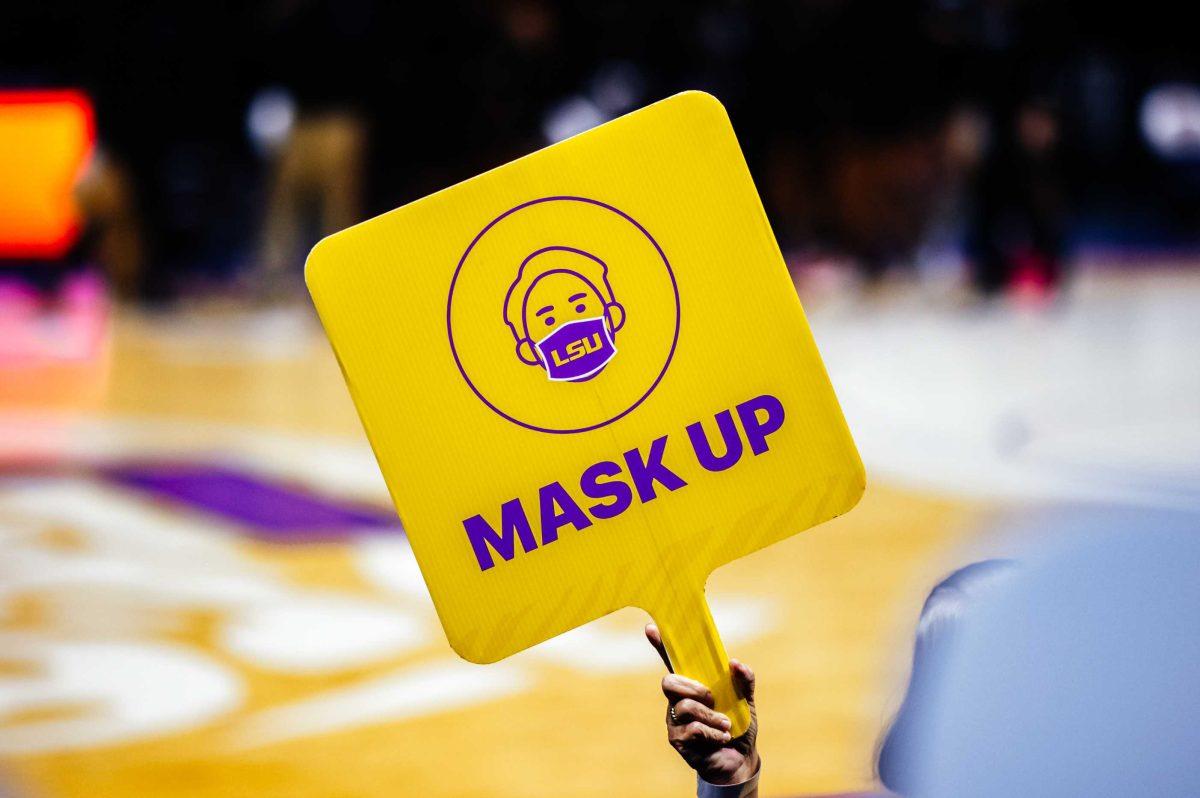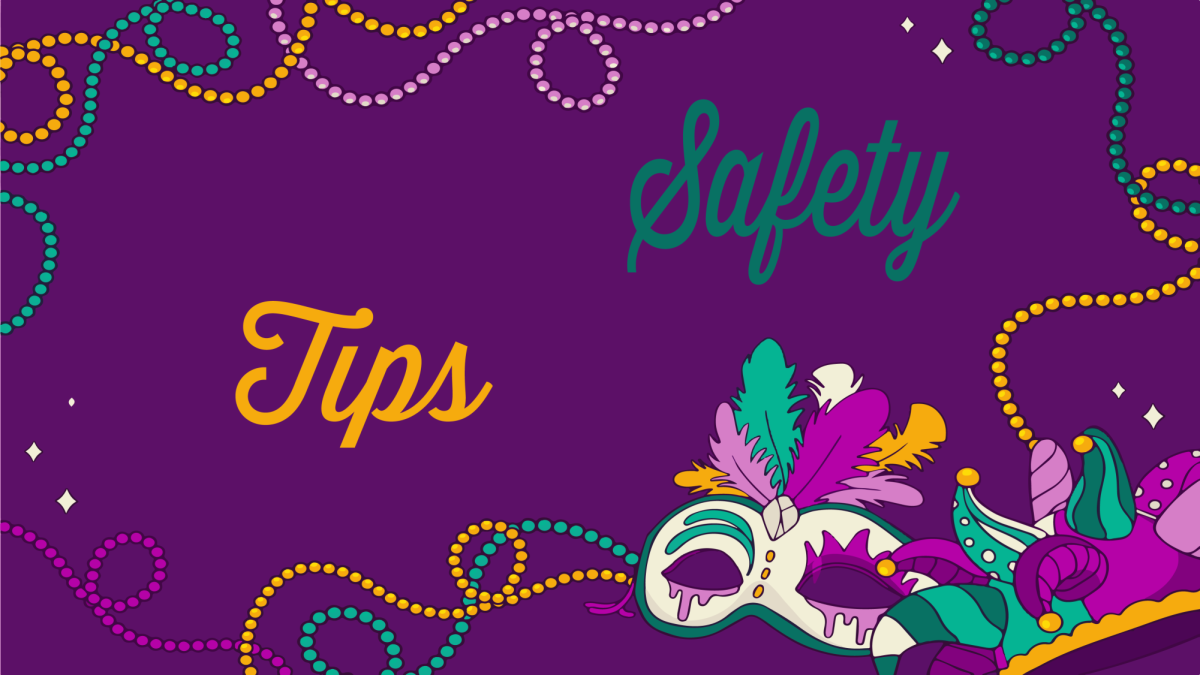LSU announced Saturday that it will reimplement its mask mandate for the spring 2022 semester and allow professors to hold in-person classes in a fully remote, hybrid or face-to-face format for the first two weeks of the semester. After two weeks is up, if the community and campus positivity rates are below 10%, classes will resume in person.
LSU will also require students living on campus to have a negative test result within five days before returning to their residence hall. A positive test within the last 90 days will also be accepted. The university will allow any type of test, including at-home tests.
Other mitigation efforts, including monthly testing of unvaccinated students, wastewater testing, and mandatory use of HEPA filters will continue.
“We want to again thank all those who vaccinated, tested regularly and masked throughout the fall semester,” President William Tate IV said in an email. “In consultation with our faculty Health and Medical Advisory Committee, and looking carefully at the nationwide surge of the Omicron variant, we are building on our successful approach from the fall and providing you with our protocols for the spring 2022 semester.”
While 84% of LSU students are fully vaccinated, just 53% of East Baton Rouge residents are, according to the Center for Disease Control and Prevention. This is slightly higher than the state’s average of 50%.
The standard two-dose vaccinations have shown to be less effective in fighting the Omicron variant. LSU and health officials are encouraging people to get boosted, which raises immunity against the new varient significantly, but LSU won’t require it.
During the fall 2021 semester, LSU required masking indoors until Nov. 16, just over two weeks after Gov. John Bel Edwards lifted Louisiana’s mask mandate. LSU also implemented a vaccine mandate late in August after the Pfizer vaccine, also known as Comirnaty, was fully approved by the U.S. Food and Drug Administration. The university also made a multi-million dollar investment in purchasing a HEPA filter for every classroom.
In an interview with The Reveille in November as the Delta variant faded, President Tate was optimistic about the outlook for the spring semester. Tate said that even if there was a surge over the winter months, the worst that could happen is a return to the fall’s mitigation efforts.
Other schools in Louisiana and across the country have announced that they will be starting the spring semester remotely or delaying the start of the semester. Southern University, also located in Baton Rouge, announced Friday that it will delay the start of in-person classes from Jan. 12 to Jan. 26.
In the month since Omicron was first detected in Louisiana, it quickly became the predominant COVID variant in the state. It now accounts for 90% of all cases in the state, according to Edwards. About 95% of the state’s 64 parishes are at the two highest levels of community spread, including East Baton Rouge Parish, which is at the highest level.
Omicron, which is considered far more transmissive than earlier variance, has also led to a surge in testing. This surge has led to some concerns of a testing shortage, which Edwards has said his administration is aiming to solve.
On Dec. 30, Louisiana received its first doses of Pfizer’s new antiviral, Paxlovid, which recently received Emergency Use Authorization from the Food and Drug Administration. The long-awaited treatment is used in patients with mild to moderate cases of COVID-19 and cuts hospitalizations by 70% in standard-risk adults.
The pill requires a long and complicated manufacturing process. Louisiana initially only received 740 courses of the treatment. Next week, the state is also slated to receive 3420 courses of Merck’s antiviral, Molnupiravir, which cuts hospitalizations by 30% in standard-risk adults.
While initial date has shown that Omicron is less severe than earlier COVID variants, experts warn that even if that is the case, that is no reason not to take it seriously.
In a press briefing held by Edwards and health officials, Theresa Sokol, the state epidemiologist said “Even if a smaller proportion of cases require hospitalization with Omicron, which we really don’t know yet, we know a smaller proportion of the enormous number of cases that are occurring may overwhelm our facilities.”
Sokol urged those who are able to work from home to do so to limit spreading the virus in the workplace. “We need to stay home as much as possible,” Sokol said. “We need to work remotely, we need to limit our interactions with people who are not in our everyday household.”
In the same briefing, Sokol and Edwards released recommendations for K-12 schools. It’s advised that students be tested before returning to school, if possible. The state is also recommending that students mask indoors as well as outdoors when social distancing is not possible. It is also being recommended that schools suspend extracurricular activities, as these have been the cause of most outbreaks at schools.
While these are the public health recommendations of the state, it’s not currently enforceable. The Louisiana High School Athletic Association announced that it will not be cancelling sporting activities in the spring.
Edwards also declined to reimplement the mask mandate, although he said that it is not off the table. “I would ask that people not focus on whether there’s a mandate in place,” Edwards said. “The recommendation is the same, we know masks work.”
LSU to re-implement mask mandate for spring semester, allow faculty to teach remotely for two weeks
January 1, 2022
A Landmark security guard holds up a “mask up” COVID-19 sign Thursday, Feb. 25, 2021 during LSU women’s basketball’s 59-68 loss to Mississippi State in the Pete Maravich Assembly Center on N. Stadium Drive in Baton Rouge, La.






